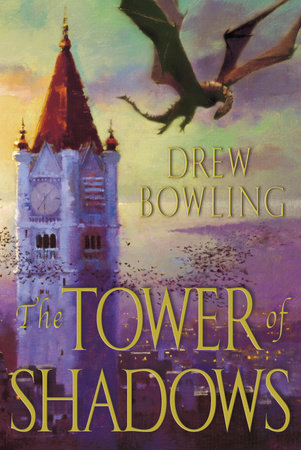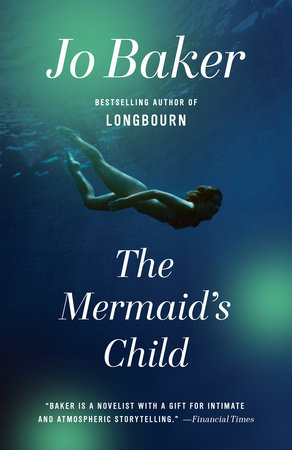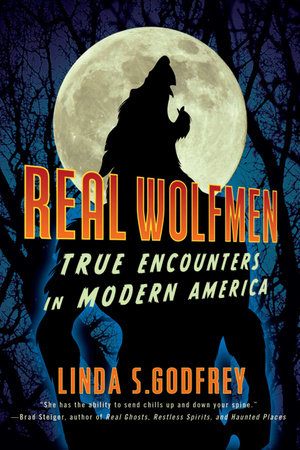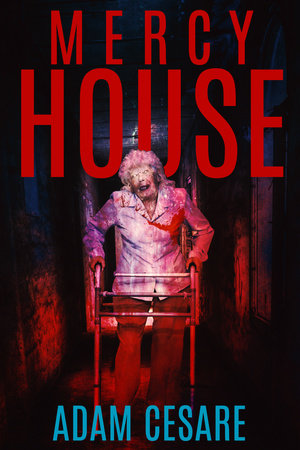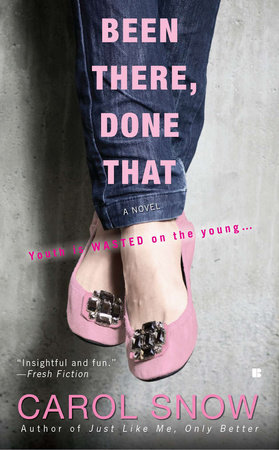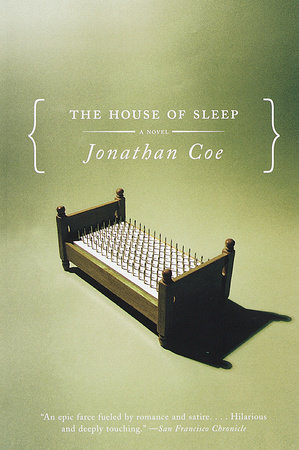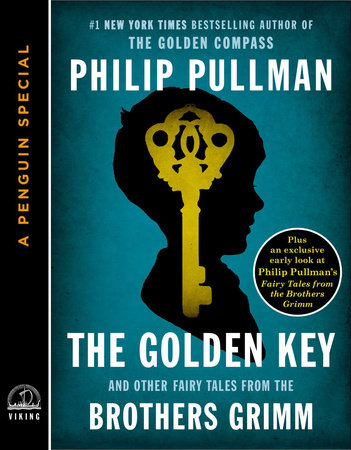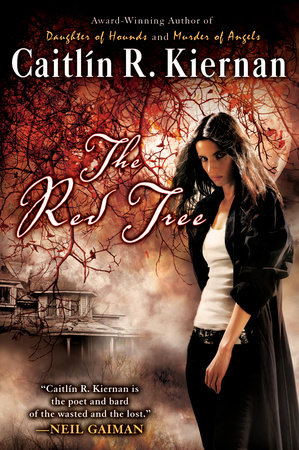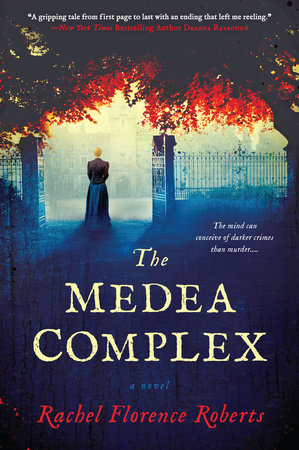Author Q&A
Question: Okay, let’s get this question out of the way: exactly how old are you?
Drew Bowling: I turned 21 on September 25.
Q: Some older readers might look at that and think, "What can a 21-year-old possibly know about life? What can he write about that will be relevant to me?" How would you respond to that?
DB: I think it was Wordsworth that said, “The child is father of the man.” He valued the magical worldview of youth and sought to use it as a lens for viewing life as an adult. Now that I’ve just legally entered adulthood, I think that’s not such a bad way to look at things. I’ve carefully guarded my sense of wonder; few things are more important to human experience, or to the creation of moving fiction. Some people believe they are too old for fairy tales. God help them.
Q: How long have you been writing?
DB: I’ve been writing for as long as I’ve been reading, and I’ve been reading for a very long time. I first learned that I might have a talent in elementary school where I sometimes won the principal’s writing award. To be honest, I’m not sure why: My stories tended to be pretty crazy. I remember one about a group of friends who got locked in a haunted house and spent an hour running around with ghouls, ghosts, and other assorted monsters. Finally, they stumble on a giant spider in the basement, which they somehow manage to kill. It didn’t make much sense, but the kids deserve praise for fighting the spider! I still think spiders are really, really scary. Near the end of my high school career, I was voted “The Next Billy Shakespeare” by my senior class, a dubious mock award which, while not exactly a Pulitzer, was nevertheless encouraging.
Q: Who are some of the writers that have influenced you?
DB: I read widely in and out of the genre. My bookshelf might seem insane to some people, and those people would probably be right. I like to think of it as a madhouse of great minds. My favorite authors are ever-changing, but I can always rely on a few from the following lineup: Neil Gaiman, James Joyce, J.R.R. Tolkien, Shakespeare, Edgar Allan Poe, F. Scott Fitzgerald, Peter S. Beagle, Cormac McCarthy, C. S. Lewis, and George R. R. Martin. They differ stylistically and thematically, but are linked by powerful imaginations. All of them have influenced my writing.
Q: What drew you to fantasy as opposed to other genres?
DB: Castles and dragons are cool! Not only that, fantasists tap our dreams and help them grow; they map the dreamscapes in our minds and chart new ones to keep us dreaming. I’m a fan of dreams. What would we have without them? Life would be pretty dull, that’s for sure. The best fantasies present time-worn themes in new and exhilarating ways; they shine light into life’s dark corners with an insight and energy unbound by modernism. Fantasy also allows writers to wax poetic, and I believe in the power of lyrical prose. The current popularity of fantasy is an added bonus. Over the past few years, a number of bestselling books and blockbuster movies have been works of fantasy. It’s tough to ignore the genre.
Q: Tell us a bit about your family background and how that contributed to your becoming a writer.
DB: My parents are avid readers: my father has a Ph. D. in 19th Century British Literature; my mother teaches English at a private school. Because they love of fiction, I was raised on stories of magic, mystery, and adventure, and constantly invented stories of my own. I would build castles from boxes and stage piratical battles with friends. My grandpa and I would swap stories of magic lamps, outlaws, and distant lands. Then, in the third grade, my father gave me a copy of The Lord of the Rings, hoping I would enjoy a book he discovered as a child. By the time I finished reading I knew I wanted to write more than anything in the world, to share the stories brewing in my imagination with others—even if they were only about kids fighting giant spiders.
Q: Many first novels have an autobiographical component, and that’s just as true of fantasies as anything else. Is The Tower of Shadows at all autobiographical? Did you base any characters on friends or family?
DB: None of my characters are autobiographical, thank God. They have enough to deal with as it is! Saving the world would be much harder if they had to work through crippling bouts of procrastination. They’d never forgive me.
Q: Your editor, Chris Schluep, says that being in one’s twenties "provides certain advantages to one trying to build a fantasy world." Could you elaborate on these advantages?
DB: Younger writers often find that their imagination hasn’t been shaped into more rigid, adultlike perceptions of reality. Instead, they tend to be more open to new and creative ways of looking at the world around them. I’m on the cusp of adulthood, and that’s an interesting place to be as a writer. Many of my characters are making similar transitions. I think my age helped me draw them with authenticity and to realistically portray the relationships between adults and teenagers.
Q: Was working with an editor different from what you had expected?
DB: The editorial process is rumored to be a brutal experience where the author’s beloved manuscript is thrown to cutthroats eager to butcher the characters and wallow in their blood. The truth is far different. My editor, Chris Schluep, is smart and perceptive, dedicated to strengthening the work of his writers. And if that weren’t enough, he is neither cutthroat nor butcher (as far as I know). Chris removed nearly nothing from my book. Instead, he sanded the story’s rough corners, mending grammatical errors and ironing out inconsistencies in the narrative.
Q: How do you combine the demands of college with writing?
DB: As a freshman, I juggled a full academic course load with my writing, which was stressful. Do not try this if you value your sanity. Because of my classes at Loyola, I progressed slowly at first. But once I signed with Random House and found being published within reach, I threw myself to the academic winds, dropped to part-time status, and began taking only a few core courses.
Q: What are you majoring in?
DB: On paper I’m an English major, but I’m really not sure I want to major in English. Loyola sophomores are required to make a tentative choice regarding their scholarly future. Given my writing aspirations, English seemed a logical placeholder for a question I have yet to answer. Political science or history might be good choices, but I won’t make a final decision until I’ve taken more classes.
Q: How has your literary success affected your life?
DB: Primarily it has given me freedom to structure my time. One of the advantages of being a novelist is the ability to set your own hours (making things up for a living doesn’t hurt either). I enjoy traveling immensely, and my relative freedom has given me more opportunity to do this.
Q: What advice would you give to other young writers looking to follow in your footsteps?
DB: Go for it. I didn’t think I would be published until much later in life, but I wrote a story that moved me, populated by characters I believed in, and sent it out for the world to judge. Don’t be scared by rejection. Success is the result of hard work and luck, but you have to take a chance.
Q: The novel features an epigraph from Matthew Arnold’s poem Dover Beach. What made you choose these lines?
DB: I’d rather let readers draw their own conclusions.
Q: Your world of Ellynrie features three gods, of air, earth, and water. Why is the god of air nameless? And why is there no god for the fourth element, fire?
DB: I think it would be best to allow readers to consider this for themselves, but I may provide more of an answer to these questions in my next book.
Q: Tell us about the way that magic works in your world.
DB: Magic in The Tower of Shadows is a wild, mysterious presence few can wield or understand. It hearkens to the powers found in Shakespearean fairy tales like A Midsummer Night’s Dream. This magic, governed by nebulous rules and gray boundaries, has limitations—wielding magic can be physically taxing—but also great potential for acts either dark or dazzling. I enjoy stories with structured magic systems, but wanted to try a different approach, weaving magic into my world as a numinous force.
Q: A lot of fantasy novels feature an evil Dark One, some nebulous force of pure malevolence that seeks to destroy all that lives. You take a different approach with your book and the character of Cade.
DB: Humans are never solely good or evil, but good and evil do exist; they constantly war in our hearts. Evil in our world must be fought, just as there is good worth fighting for. Cade is a battered man who, because of the devastation in his past, harbors a desire for revenge. But revenge seldom accomplishes anything. His pride has blinded him; his quest for vengeance has shattered his moral compass; yet he is also slightly sympathetic. His actions, while wrong, are understandable.
Q: Another common element in fantasies is the quest for a talisman: a ring, a sword, etc., and there, too, you take a different approach. It seemed to me that if there was a talisman in The Tower of Shadows, it was not an object but a human being: the character of Corin. Did you think of Corin in those terms?
DB: I tried to avoid fantasy clichés whenever possible. My goal was to create an exciting, accessible narrative set in a real but magical world, focusing on the human element of the story.
Q: Your other main characters—the young wizard Adriel, the impetuous young woman Kayla, and her father, Wren, a disillusioned former mercenary—are as fully drawn as Corin himself and equally important to the action, instead of just being supporting characters. Why did you give your book a group of main characters instead of focusing on just one?
DB: Stories told from a variety of perspectives reveal more of the truth. Each of my characters is vital to the plot and to the reader’s understanding of the story. Multiple perspectives add a layered richness to novels, resonating with, and enhancing one another.
Q: One of the main themes in your book seems to be the need to acknowledge and come to terms with the past, however painful. Was that something you were consciously trying to address?
DB: We are products of our past but never its prisoners. Many of my characters have pasts full of pain, mystery, and fear. Some, like Wren, are crippled by the loss of loved ones; others, like Cade, have allowed themselves to be twisted by the death of family members. We have to understand where we come from, reconcile unsolved problems, answer pertinent questions, and come to terms with tragedy. Only then can we move on.
Q: What can you tell us about the next book in the series?
DB: I hope it will be better than the first! My writing should improve with experience. I hope to strive for a higher standard with each new book I write. The Tower of Shadows is the springboard for a larger story that, once complete, will be told in three stand alone parts. The scope of the next book will broaden: the cast of characters will grow, the number of locations spread across the world. I don’t want to reveal details about the plot, but the story will be filled with adventure and magic. Readers will meet pirates and lovers, bandits and princes, witches, jesters, and thieves, to name a few. And I’ll introduce a special character whose appearance will be rather shocking. Happy reading!
